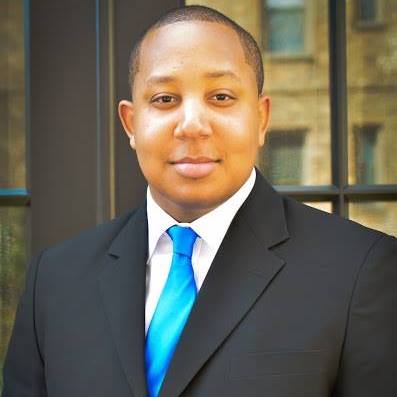9 Things You Need to Include in Your Lease
You’ve probably heard of the phrase “a verbal contract isn’t worth the paper it’s written on”. Well, this quote is completely accurate because a verbal agreement holds little weight when it comes to binding both landlord and tenant to terms of the rental.
Your tenant should always sign a lease before moving in, and there are specific clauses you want to ensure are in writing so that both parties are on the same page. I’ve outlined some of the most important clauses that you would want to feature in every lease
#1 Term of the Lease
Every lease needs a defined term stating the exact date the contract will begin and the exact date the contract will end. The tenant will normally move-in on the lease start date (the date from which rent starts being charged) and will typically move-out on or by the lease end date. Standard lease terms are:
- One Year (most popular)
- 6 Months
- 3 Months
The lease will typically state the total rent due during the lease term—for instance, $1,000 monthly rent *12 months = $12,000 yearly rent. The lease makes tenants contractually obligated to pay the full year’s rent, but they are provided the convenience of paying rent monthly on the 1st. It is important for tenants to realize that if they seek to ‘break’ or terminate their lease contract early, they may still be liable for the portion of the unpaid lease term.
#2 Names of All Tenants
All parties residing in the apartment should be named tenants on the lease. Committing to this practice ensures that each person residing in the apartment is held to the same rules and that each person is liable to pay rent. If Tenant A is late on rent, Tenant B is responsible not only for their own share, but for Tenant A’s. This is called ‘joint and several liability’.
There is a clear differentiation between a ‘tenant’ and a ‘guest’. A tenant is someone who resides in the unit long term and is bound to the obligations set forth in the lease agreement. A guest is someone who occasionally visits the apartment, they may or may not spend a few consecutive days there, or they serve as hired help. Due to certain privileges that tenants enjoy, if a party seeks to live in the unit for a period exceeding 30 days, it is recommended to add that party to the lease.
#3 Occupancy Limits
Additional residents in your rental means added wear and tear and additional utility usage. The best practice would be to limit the amount of people to say, 2 persons per bedroom + 1 person in the living room. This means that if the you have a 1-bedroom unit for rent, you would accept no more than 3 tenants. There are also very specific zoning codes and ordinances limiting occupancy.
#4 Pet Restrictions
We all love dogs, but do you want one living in your rental property? Pets can cause some serious damage to an apartment. I remember one time a client of mine had a carpeted apartment and rented it to a tenant with a cat. That didn’t go so well. Cats are lovely, but everyone knows cat urine is probably one of the top 5 worse things you could smell. When the tenant moved out, the carpet smelt horrible.

Granted, these are reasons why you collect a security deposit—and you should always collect a security deposit. But some landlords would rather not deal with the hassle. Having said that, it depends on the neighborhood in which your property is located. Is there a dog park nearby? Do other landlords in the area permit pets? In addition, as of 2020, emotional support animals are not considered pets per Fair Housing guidelines, thus, emotional animals are legally permitted to reside in the apartment with the tenant. You would want to familiarize yourself with these guidelines in order to be fully compliant.
#5 Deposits and Fees
In the last point I touched on security deposits. A security deposit is vital in case your tenant damages the apartment or falls behind on rent or owes any charges. In New York state, a security deposit cannot exceed one month’s rent. I always recommend that my clients collect a full month of security deposit. Landlords in New York must also return the security deposit within 14 days of the expiration of the lease.
The funds must also be kept separately in an interest-bearing account. The lease should also spell out at which the bank the security deposit is located. Upon move-out, I would also draft a special document or acknowledgment letter that the tenant has received the security deposit. If deductions are necessary, provide the tenant with an itemized list outlining each deduction. See examples below:
- – $250 re-paint one wall
- – $250 furniture removal
- – $75 deep clean stove & refrigerator
- – $20 lightbulb replacement

#6 House Rules
Your lease is a pre-generated 3-4 page document. I recommend a lease drafted by Blumberg or REBNY (Real Estate Board of New York). Both offer leases for condominiums & co-ops, single & multi family homes, and rent stabilized units. However, having an additional page outlining your own house rules is crucial. Here are some of the house rules you’d want to include:
- Fees: Late fees/returned check fees
- Prohibited appliances
- Penalties for objectionable conduct
- Entry rights for the landlord.
The ‘house rules’ is a major component because it allows you to tailor and further explain the rules and regulations living in your rental property. It’s always better to include more than to have less, and to be fully transparent with all rules because you want all parties to be on the same page.
#7 Maintenance
A broken air conditioner, a leaky fridge, a blown light bulb, pest control. These sorts of scenarios can arise during the tenancy. You will need to make it clear in writing the kinds of items that you will be responsible for maintaining. To ascertain whether or not an item should be maintained by you, think of it this way: if you provide it, you maintain it. If you offer the apartment with a fridge, you maintain the fridge.
There are limits on this however, specifically when it comes to backyard and lawn care. This should be worked out in writing between you and the tenant. I personally recommend making the tenant maintaining outdoor spaces.
#8 Alterations
6 months into the lease, you stop by your rental to supervise a technician fixing your air conditioning unit. To your surprise, you see that the entire apartment has been painted purple. Your tenant’s taste may not be your taste at all.
Because of this, your lease should state that any alteration to the apartment must receive the approved written consent of the landlord.
It is expected for the tenant to return the apartment to you in its original condition that it was given at lease signing. Any change, outside of normal wear and tear is grounds for deducting payments from the security deposit.
#9 Riders
Riders—depending on your jurisdiction, there can be a few or many of them.
Lease riders are attached to the lease and alter the terms of the contract. There are riders required by law (such the Bed Bug rider, the Fire Sprinkler rider) and riders that you may want to create to alter certain terms of the lease. (Remember, the lease is generated by REBNY or Blumberg).
While the pre-generated lease could state that 30 days’ notice must be given if the tenant seeks to terminate the lease early, you might want that notice to be 45 days instead. Here’s where your lease rider would come in amending that clause of the lease.

Ultimately, it’s important to remember that your lease is there to defend you, the landlord. The lease should spell out in detail what you are responsible for and not responsible for, what the tenant cannot do & remedies for correcting actions that run contrary to the lease.
There are additional lease clauses you may want to include, ranging from a renewal policy when the lease expires, to a default and compiling of rent clause for non-payment.
I’ve worked with many clients to help tailor leases to their individual needs. Hiring an experienced agent who is familiar with multiple leases and has seen many scenarios could mean the difference between having a profitable rental property to having a money pit.

Whether you’re looking to buy a new home or you’re a landlord seeking a new tenant, many will agree that Dondre D. Roberts is an expert in the complex field of New York City real estate. Having sold and leased $10 million dollars in real estate, Dondre can be counted on for his expertise, drive and tenacity to fight for his clients. He has worked for Nest Seekers International, a global real estate firm, large landlords and mom and pop owners alike. In his spare time, Dondre enjoys brunching, dog-sitting, traveling, coffee sipping, and reading the New York Times. He also likes Darth Vader, is a proud Bronxite, and is left-handed.
- 347.346.1426
- Dondre@Nestseekers.com
